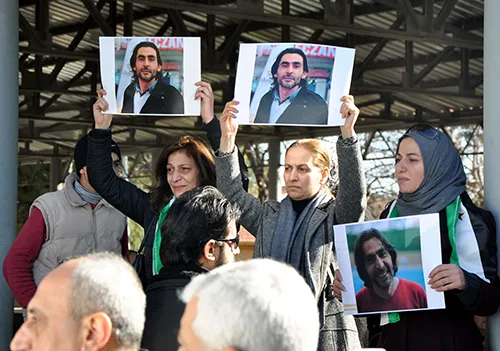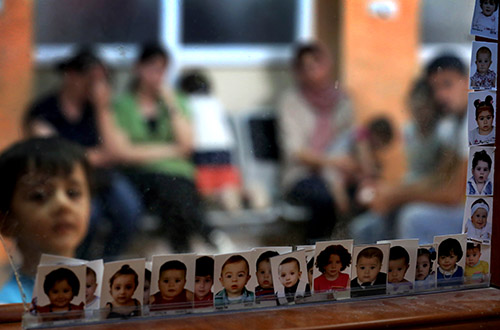Nadia Massih/CPJ Middle East Correspondent
Nadia Massih is CPJ's Middle East correspondent. Massih, who is based in Beirut, is a freelance journalist who worked previously at The Daily Star in Lebanon.
Infographic: Islamic State’s assault on the press
When Mosul fell to Islamic State on June, 10, 2014, it sparked one of the biggest attacks on press freedom in recent times. Newspapers were shuttered, TV channels were ransacked, radio stations disappeared from the airwaves, and dozens of journalists vanished. Within days, the militants had a monopoly on information output.

For journalists fleeing Islamic State, Turkey ‘is as dangerous as Syria’
For the past two years, activists and journalists seeking refuge from Islamic State repression in Raqqa would take sanctuary across the border in southern Turkey, setting up safe houses and offices, and darting back to Syria regularly with camera equipment and other vital supplies. But that sanctuary is now under threat.

Chasing ghosts: Tracking Iraq’s missing journalists in Islamic State stranglehold of Mosul
Amar hasn’t left his house in five days. Every evening he fears a knock on the door will bring militants who have been searching for him. He hasn’t earned a salary in more than a year and relies on a few trusted neighbors to bring him food.
CPJ joins call for Syria to drop charges against press freedom activists
The Committee to Protect Journalists has joined 16 other human rights and press freedom organisations calling on Syrian authorities to drop charges against Mazen Darwish, the founder of the Syrian Center for Media and Freedom of Expression, who was released from prison on August 10.
How Islamic State uses killings to try to spread fear among media
The militant group Islamic State may be trying to push Syria back into the dark ages, but it is fighting a very modern war. From slick propaganda videos to online surveillance and wide restrictions on Internet use, the Islamic State is trying to control media output and stamp down on dissent.